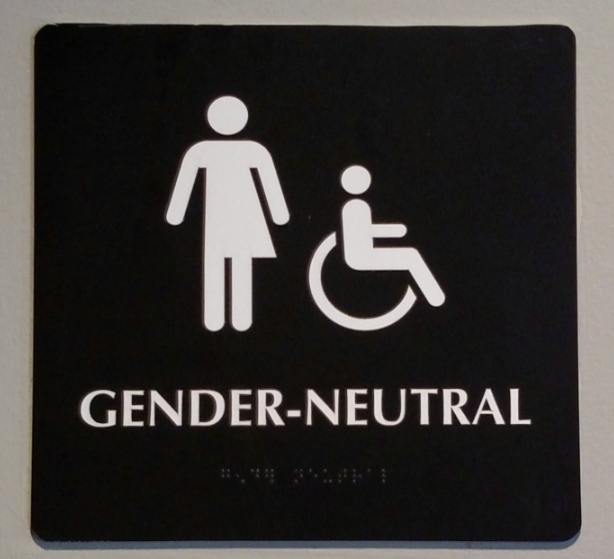Today, we’re diving into a topic that’s buzzing in conversations everywhere – gender-neutral bathrooms. We know that a lot of people feel passionate about this topic, so it is important that we have open minded conversations and make sure we have all the facts.
What Are Gender-Neutral Bathrooms, Anyway?
Gender-neutral bathrooms are spaces where anyone, regardless of their gender, can comfortably go to the loo. They’re like the ultimate “no judgment” zones, where everyone’s welcome to do their thing without any labels or stereotypes. These bathrooms are all about creating a world where we’re free to be ourselves, no matter how we identify. Importantly, they are also spaces which include cubicles and open waiting and hand washing areas, which is different to Unisex toilets which are usually a single cubicle with the handwashing facilities inside them.
The Chatter Around Gender-Neutral Bathrooms
There’s a mix of opinions floating around about gender-neutral bathrooms. Some people are totally on board, seeing them as a big high-five to inclusivity. They’re like the symbol of embracing diversity and showing respect for every person’s unique identity.
But hey, it’s not all sunshine and rainbows. There are some worries out there, too. Safety and privacy concerns have been raised, and recent news stories, like the one you can find here, have shone a light on these issues. It’s important to talk about these concerns and find solutions that make everyone feel safe and comfortable.
What does the Government say
The legal side of things is a bit of a mixed bag. Laws about gender-neutral bathrooms change depending on where you are. Some places have embraced the idea, while others are still figuring things out. It’s like trying to pick a movie – sometimes it takes a while to decide what’s right.
On the 13th of August 2023, the department of levelling up, housing and communities has stated that all new non-domestic public and private buildings should have separate male and female toilets. The changes being made aim to ensure that:
- separate single-sex toilets facilities are provided for men and women and/or
- self-contained, private toilets are provided where space allows to ensure privacy and safety
- mixed sex shared facilities are not an option, except when lack of space allows only a single toilet
Food for Thought
When we chat about gender-neutral bathrooms, there are a few things to chew on:
Accessibility Matters: Not all places have gender-neutral bathrooms. This is new territory for all of us and it’s going to take a while to work through the kinks. If you only feel comfortable with particular facilities, check spaces ahead of time to see what is available. If you must use facilities that you aren’t quite comfortable with, you can always buddy up and take someone with you.
Gener Neutral bathrooms in schools
As mentioned above, this is a more controversial topic right now. Really it is down to the premises, whether a business the serves customers or a school, to communicate any changes they are making and do so well in advance. Ideally, they should be finding out how people feel about the changes and ensure that it ends with everyone feeling listened to and catered for. At the end of the day, we all deserve to feel safe and comfortable. There isn’t any advice out there at the moment in regards to school toilets but communication is always a great start.
The Bottom Line
The talk around gender-neutral bathrooms aims to take us one step further towards equality. It is going to take open and honest conversations and ensure that people feel heard. . Ultimately, the vibe is all about being considerate. Respect, consent, and understanding are like the secret recipe. It’s a simple mix – be kind, keep those sexual health convos open, and always think about safety. So, let’s be change-makers, respect each other’s opinions, and work together to make places where everyone feels good.
Stay curious, stay informed, and keep the conversations rolling. Together, we’re building a world where everyone’s voice matters and where we all belong.
If you have any thoughts or experiences to share on this topic, then please do let us know by contacting us on contact us on 0300 303 9982 or [email protected]. Let’s keep the conversation going!



